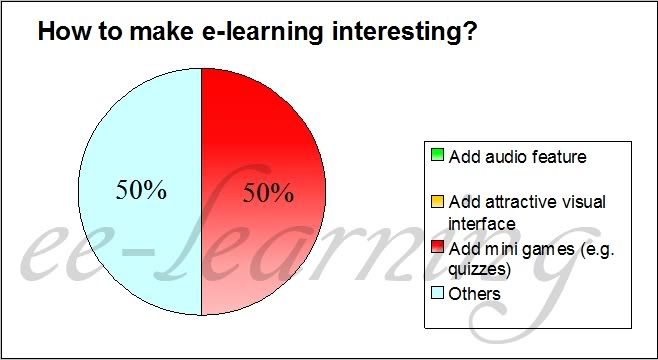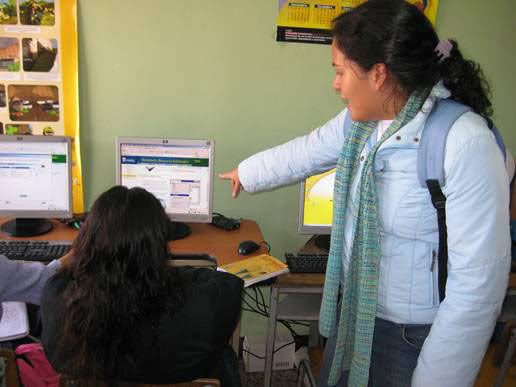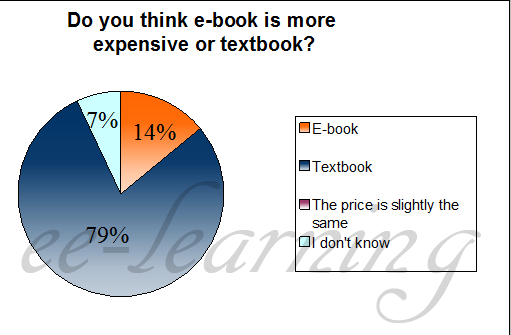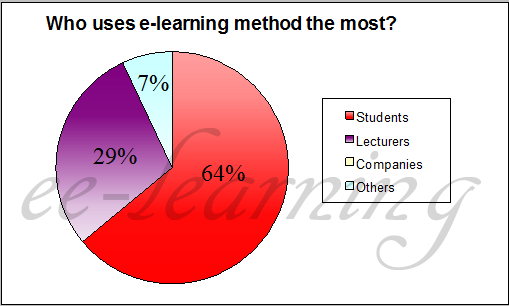Previously, we did discuss on what is the meaning of e-learning, types of e-learning, one of the factors which differentiate e-learning and traditional way of learning and etc but we have yet to discuss the pros and cons of e-learning.
So, today, we will be discussing on the benefits of e-learning.
What is the first point in your thought when you first think about the advantages of using e-learning?
Convenient? Time?Cost?
In our opinion, there are a lot of advantages in using e-learning but we will be highlighting on three points which are the convenience, cost and time.
Convenience
It is convenient for the students to study as they can study anywhere but with the use of electronic device for example laptops. Students can either study at home or outside during day time or night time. Students can take the learning lessons to other location. Well, of course it doesn't mean that we actually bring the classroom to other place to study but what it means is that we can study anywhere we want. We can use e-learning when we are outside like in a restaurant, provided the area has internet connection. Learning is self-paced. For those slow learners, they could pick what topic to study first as e-learning is flexible. Slow learners can go step by step and not rushing to finish the syllabus. By doing so, they could reduce their stress as no one is giving them pressure. Not only that, students can either read materials online or download them later. They could study and learn at their own pace. Students can also join discussions between their classmates and instructors in chat rooms using chat services. This benefits the students because it is convenient to just talk in the chat rooms than rather to talk on the phone. By doing so, they will get instant feedbacks.
Time
Students use e-learning to study do not have to worry transportation problem, traffic jams when they are on the way to schools, out of papers when they have to print notes in the library and so on. E-learning is where students could save the travelling fees, materials fees like papers and most importantly they could save a lot of time. Students can avoid those problems and concentrate on their studies. Moving on, e-learning provides courses which are available 24 hours. This is where students could study anytime they want. Students who have to work can always pick to study at night or day depending on the working shift.
Cost
Not only convenient and time, students could also save cost. Students could save travelling fees, materials fees like textbooks, and so on. Nowadays, studying online is common. There are a lot of e-learning websites that provide courses which meet students needs. There are websites that provide programs for Degree, Certificate and so on. As long as there are students willing to study online, there will be online tutor who will be willing to teach them. E-learning gives reasonable price which fit your budget. Moving on, deforestation is getting serious nowadays. We need to save trees in order to make our Earth greener. E-learning could save our Mother Nature as homework,teaching and assignments are all almost done online. Students will not need to buy textbooks, notebooks, or using papers to print out assignments. We could save a lot of money and at the same time we could save trees!
Do e-learning benefits only for students but not instructors?
No. E-learning could benefits both parties. Instructors which holds a Master holder or higher normally will have wide knowledge. They could share their knowledge and guide students through distance learning which is convenient for both parties. Instructors could not only share their knowledge to students but at the same time, they could also earn their own income. Not only that, instructors could also do more than one job. Beside being an online tutor, they could also do other job. By doing so, they are earning more money.
References:
- Kevin Kruse,e-learningguru,The Benefits and Drawbacks of e-learning [Online], Retrieved on Monday, 8th of February 2010
- Worldwidelearn, Benefits of e-learning [Online], Retrieved on Monday, 8th of February 2010








